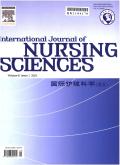医疗保健提供者对糖尿病护理中人工智能的看法:一项在中国进行的横断面研究
IF 3.1
3区 医学
Q1 NURSING
引用次数: 0
摘要
在中国,糖尿病仍然是一个主要的全球健康挑战。人工智能(AI)在改善糖尿病管理方面已显示出相当大的潜力。本研究旨在评估中国医疗保健提供者对人工智能在糖尿病护理中的看法。方法于2024年11月12日至11月24日采用滚雪球抽样法进行横断面调查。我们采用滚雪球抽样的方法从中国30个省市的医疗服务提供者中选择了514名医生和护士。该问卷由5个部分组成,共19个问题,评估医务工作者的人口统计学特征、人工智能相关经验和兴趣、对人工智能在糖尿病护理中的认识、态度和关注。采用t检验、方差分析(ANOVA)和线性回归进行统计分析。结果受访者中分别有20.0%和48.1%的人参加过人工智能相关的研究和培训,85.4%的人对糖尿病护理人工智能培训有中至高度的兴趣。大多数受访者表示对糖尿病护理中的人工智能有部分了解,只有12.6%的人表现出全面或实质性的了解。糖尿病患者对人工智能护理的态度总体为积极,平均得分为24.50±3.38分。护士的得分明显高于医生(P <;0.05)。更强的认知、先前的人工智能培训经验以及对糖尿病护理中人工智能培训的更高兴趣与更积极的态度密切相关(P <;0.05)。对人工智能的主要担忧包括人工智能临床医生不一致造成的信任问题(77.2%),工作量增加和临床工作流程中断(63.4%),以及不完整的法律和监管框架(60.3%)。只有34.2%的受访者表示担心工作被取代,这表明他们对自己的职业角色普遍充满信心。结论虽然中国医疗服务提供者对人工智能在糖尿病护理中的应用意识不高,但他们的态度总体上是积极的,并且对未来的培训相当感兴趣。量身定制的、针对特定角色的人工智能培训对于公平有效地融入临床实践至关重要。此外,必须优先考虑透明、可靠、道德的人工智能模型,以减轻从业者的担忧。本文章由计算机程序翻译,如有差异,请以英文原文为准。
Healthcare providers’ perceptions of artificial intelligence in diabetes care: A cross-sectional study in China
Objectives
Diabetes remains a major global health challenge in China. Artificial intelligence (AI) has demonstrated considerable potential in improving diabetes management. This study aimed to assess healthcare providers’ perceptions regarding AI in diabetes care across China.
Methods
A cross-sectional survey was conducted using snowball sampling from November 12 to November 24, 2024. We selected 514 physicians and nurses by a snowball sampling method from healthcare providers across 30 cities or provinces in China. The self-developed questionnaire comprised five sections with 19 questions assessing medical workers’ demographic characteristics, AI-related experience and interest, awareness, attitudes, and concerns regarding AI in diabetes care. Statistical analysis was performed using t-test, analysis of variance (ANOVA), and linear regression.
Results
Among them, 20.0 % and 48.1 % of respondents had participated in AI-related research and training, while 85.4 % expressed moderate to high interest in AI training for diabetes care. Most respondents reported partial awareness of AI in diabetes care, and only 12.6 % exhibited a comprehensive or substantial understanding. Attitudes toward AI in diabetes care were generally positive, with a mean score of 24.50 ± 3.38. Nurses demonstrated significantly higher scores than physicians (P < 0.05). Greater awareness, prior AI training experience, and higher interest in AI training in diabetes care were strongly associated with more positive attitudes (P < 0.05). Key concerns regarding AI included trust issues from AI-clinician inconsistencies (77.2 %), increased workload and clinical workflow disruptions (63.4 %), and incomplete legal and regulatory frameworks (60.3 %). Only 34.2 % of respondents expressed concerns about job displacement, indicating general confidence in their professional roles.
Conclusions
While Chinese healthcare providers show moderate awareness of AI in diabetes care, their attitudes are generally positive, and they are considerably interested in future training. Tailored, role-specific AI training is essential for equitable and effective integration into clinical practice. Additionally, transparent, reliable, ethical AI models must be prioritized to alleviate practitioners’ concerns.
求助全文
通过发布文献求助,成功后即可免费获取论文全文。
去求助
来源期刊

International Journal of Nursing Sciences
Nursing-Nursing (all)
CiteScore
6.10
自引率
2.60%
发文量
408
审稿时长
25 days
期刊介绍:
This journal aims to promote excellence in nursing and health care through the dissemination of the latest, evidence-based, peer-reviewed clinical information and original research, providing an international platform for exchanging knowledge, research findings and nursing practice experience. This journal covers a wide range of nursing topics such as advanced nursing practice, bio-psychosocial issues related to health, cultural perspectives, lifestyle change as a component of health promotion, chronic disease, including end-of-life care, family care giving. IJNSS publishes four issues per year in Jan/Apr/Jul/Oct. IJNSS intended readership includes practicing nurses in all spheres and at all levels who are committed to advancing practice and professional development on the basis of new knowledge and evidence; managers and senior members of the nursing; nurse educators and nursing students etc. IJNSS seeks to enrich insight into clinical need and the implications for nursing intervention and models of service delivery. Contributions are welcomed from other health professions on issues that have a direct impact on nursing practice.
 求助内容:
求助内容: 应助结果提醒方式:
应助结果提醒方式:


